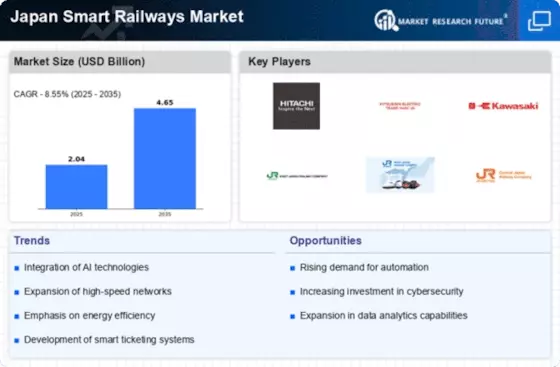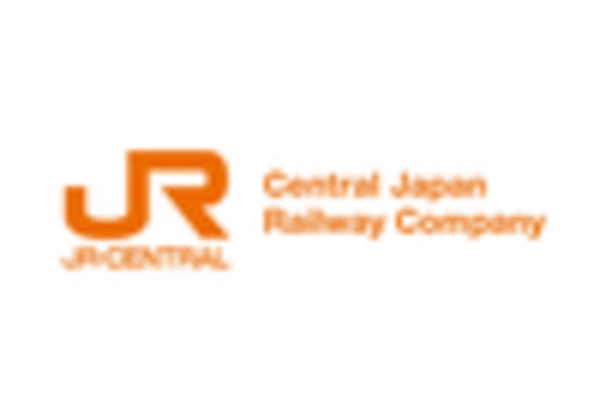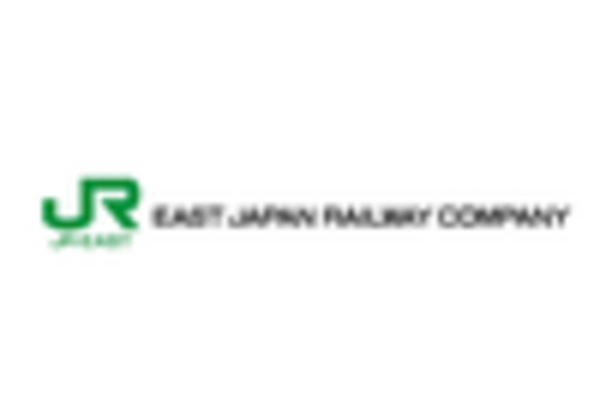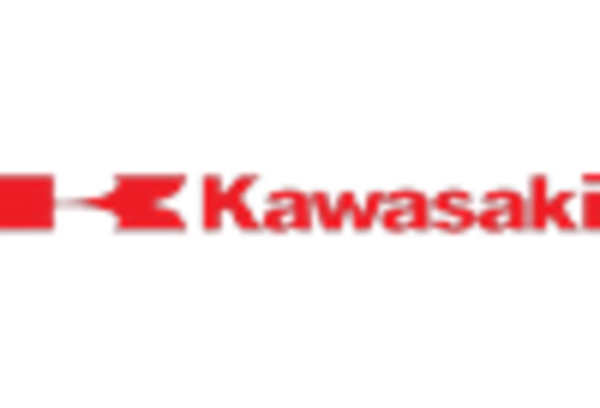Environmental Sustainability Goals
The Japan Smart Railways Market is increasingly aligned with the country's environmental sustainability goals. The Japanese government has set ambitious targets to reduce greenhouse gas emissions, and the railway sector is a key focus area. By promoting the use of electric trains and renewable energy sources, the industry aims to minimize its carbon footprint. Additionally, the integration of smart technologies facilitates energy-efficient operations, such as optimizing train schedules and reducing energy consumption. As public awareness of environmental issues grows, there is a rising demand for sustainable transportation solutions. Consequently, the Japan Smart Railways Market is likely to benefit from this shift towards greener practices, positioning itself as a leader in sustainable rail transport.
Enhanced Safety and Security Measures
Safety and security are paramount in the Japan Smart Railways Market, particularly in light of the country's commitment to providing safe public transportation. The implementation of advanced safety technologies, such as automated train control systems and surveillance cameras, is essential to ensure passenger safety. Moreover, the Japanese railway system has a reputation for its low accident rates, which is bolstered by continuous investments in safety measures. The integration of smart technologies allows for real-time monitoring and rapid response to potential threats, enhancing overall security. As safety remains a top priority for both operators and passengers, the Japan Smart Railways Market is expected to see sustained growth driven by these enhanced safety and security initiatives.
Government Initiatives and Investments
The Japan Smart Railways Market is significantly influenced by government initiatives aimed at enhancing transportation infrastructure. The Japanese government has allocated substantial budgets for the modernization of railway systems, with investments exceeding 1 trillion yen in recent years. These initiatives focus on integrating advanced technologies, such as AI and IoT, to improve operational efficiency and safety. Furthermore, the government promotes public-private partnerships to foster innovation in the rail sector. This collaborative approach not only accelerates the deployment of smart technologies but also ensures that the railway systems remain competitive on a global scale. As a result, the Japan Smart Railways Market is poised for growth, driven by these strategic investments and policies that prioritize sustainable and efficient transportation solutions.
Rising Urbanization and Population Density
Japan's rapid urbanization and increasing population density are pivotal drivers of the Japan Smart Railways Market. With over 37 million residents in the Greater Tokyo Area alone, the demand for efficient and reliable public transportation systems has surged. This urban growth necessitates the implementation of smart railway solutions to alleviate congestion and enhance connectivity. The integration of smart technologies, such as real-time tracking and automated ticketing systems, is essential to meet the needs of urban commuters. Moreover, the Japan Smart Railways Market is expected to expand as cities invest in modernizing their rail networks to accommodate the growing population, thereby improving overall urban mobility and reducing travel times.
Technological Advancements in Rail Systems
Technological advancements play a crucial role in shaping the Japan Smart Railways Market. Innovations such as high-speed trains, automated signaling systems, and predictive maintenance technologies are transforming the railway landscape. For instance, Japan's Shinkansen, known for its speed and punctuality, is continuously upgraded with cutting-edge technologies to enhance performance and safety. The adoption of smart sensors and data analytics allows for real-time monitoring of train operations, which can lead to improved service reliability. As these technologies evolve, they are likely to drive further investments in the Japan Smart Railways Market, fostering a more efficient and responsive rail system that meets the demands of modern travelers.
















